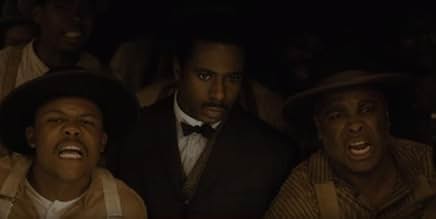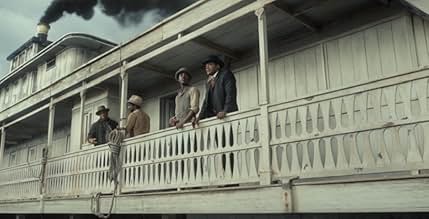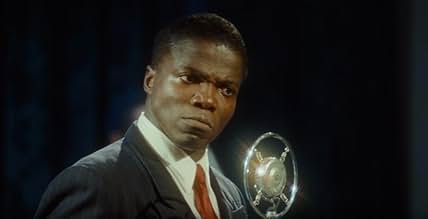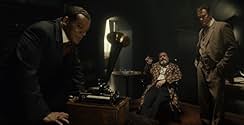A mythical account of the life of Buddy Bolden, the first Cornet King of New Orleans.A mythical account of the life of Buddy Bolden, the first Cornet King of New Orleans.A mythical account of the life of Buddy Bolden, the first Cornet King of New Orleans.
- Awards
- 2 nominations
Donald Elise Watkins
- Brock Mumford
- (as Donald Watkins)
Storyline
Did you know
- TriviaBolden's cornet solos were performed by multiple Grammy winner, Wynton Marsalis.
Featured review
I knew nothing about Buddy Bolden before seeing this film and after seeing it I know even less. This film is put together like a two hour trailer, the scenes jump around in time and never seem to build to a satisfying emotional conclusion. There are individual shots that promise something interesting, but never seem to finish. Even the jazz numbers which are well arranged by Wynton Marsalis, do not get to finish. And most music varies in fidelity and we move thru time and space.
The period details are perfect as is the music, sounding like it's played on period instruments. The performances are believable especially Gary Carr as Buddy Bolden who presents a broad range of emotions. He can be exhibiting a youthful energy exploring the nascent possibilities of jazz, or suffering trough rough parts of his life. The most familiar face in the cast is Ian McShane, but his charter is presented in such a choppy way, I have no idea who his character was or how he figured in Bolden's life.
I saw this at a special screening with the writer director Dan Pritzker in attendance, and he acknowledged that no recording of Bolden exists and so little is known about Bolden that he has no idea if he invented jazz or not, he just thought it was a good tag line.
The period details are perfect as is the music, sounding like it's played on period instruments. The performances are believable especially Gary Carr as Buddy Bolden who presents a broad range of emotions. He can be exhibiting a youthful energy exploring the nascent possibilities of jazz, or suffering trough rough parts of his life. The most familiar face in the cast is Ian McShane, but his charter is presented in such a choppy way, I have no idea who his character was or how he figured in Bolden's life.
I saw this at a special screening with the writer director Dan Pritzker in attendance, and he acknowledged that no recording of Bolden exists and so little is known about Bolden that he has no idea if he invented jazz or not, he just thought it was a good tag line.
- segaltoons
- May 2, 2019
- Permalink
- How long is Bolden?Powered by Alexa
Details
- Runtime1 hour 48 minutes
- Color
- Aspect ratio
- 1.85 : 1
Contribute to this page
Suggest an edit or add missing content





































